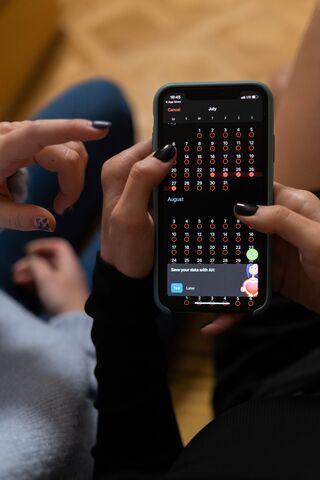Anxiety
Planning for Spring: 5 Essentials for a Successful Semester
It's not too late for students to set themselves up for a great spring term.
Posted March 8, 2021 Reviewed by Lybi Ma
Even though we're a few months into the semester, I've been getting loads of questions from clients and parents about how to get the most out of the semester despite not having the strongest start. I tell every student: Don't wait until Monday. Don't wait until next month. Don't wait until Summer or next Fall. Start right now. Take the next five strategies and get them going immediately. Waiting is an excuse that vails our avoidance. Get moving.

1. Get Your Classes on the Calendar
To this day, I'm still amazed at how many students:
- Do not know their class schedule Until the Day Classes Start.
- Don't use some sort of calendar (eg. iCal, google calendar, paper calendar, whiteboard).
I'll just guess that 20 percent of the problems the students with whom I work are directly related to the lack of being able to see how each of the hours for each day is allocated. The absolute greatest, most effective behavior a student can execute with maximum return on investment is:
- Go onto the school's course platform (eg. Canvas or Blackboard are typical)
- Download or manually input All their class sessions (yes, for the entire semester)
While there is a whole other level of detail I do with students on scheduling and organizing, this is the basic starter's edition of what to do to get ready for the semester. When should students do this scheduling? I recommend they get their calendar filled out with courses several days before heading back to campus. I also recommend that all students share their calendars with parents, a super simple step that gives parents a solid understanding of what each day looks like for their students.
2. Download the Entire Academic Calendar
Most schools now provide a downloadable calendar with all campus-wide academic dates including the first day of classes, add/drop periods, last day of classes, and so on. Here's an example of Indiana University's Spring 2020 calendar, which can be uploaded to Google Calendar and iCal (on iPhones). Why is it important to have these broader academic dates? They can have a huge impact on a student's experience. For example, I had a student last spring who struggled with anxiety so badly he ended up not being able to attend class. If he had known when the final date was to withdraw from a class without penalty, his GPA would have been protected from his truly difficult mental health challenges.

3. Schedule Appointments with Health Professionals
Many students work with professionals in the community near their schools—whether it's scheduling their yearly check-up, routine teeth cleaning with a dentist, or weekly sessions with a therapist. As a professional who lives and dies by the calendar, I can confirm how challenging it is to make room for clients after the first week or two of the start of the semester. Psychiatrists have even less availability, often only having availability months out. For students taking psychotropic medications or any medications that require more regular oversight or prescriptions, making appointments with a psychiatrist (or nurse practitioner) is essential. Once contact is made and appointments are set, make sure to have 100 percent of all sessions put onto the calendar. The student is then prepared for all appointments and the likelihood of 'no-showing' is drastically reduced.
4. Plan Visits, Travel, and Breaks
Many students with whom I work need something to look forward to. Planning (even tentatively) for when parents or family can visit on campus or the student can go home for a long weekend often provides a sense of positive anticipation and a reminder that slogging through the semester will not last forever. Let's face it unless a student is at FSU, Stanford, or some other climatically-endowed location, the early months of the spring semester can be grueling. Having a visit or short vacation to look forward to can make a big difference.

5. Start Talking About Summer Plans
Along the same lines as planning visits and travel is the, maybe, more fun project of planning Spring Break. Planning over Winter Break can often help save costs and nail down better accommodations and flights. I've worked with a ton of students who got super angry when the flight they wanted was totally booked. Then they spiral down and start freaking out about 'missing' Spring Break since the only flights available are red eyes to Cabo. Again, the value of planning ahead goes beyond saving money and getting better options. There is a real sense of agency, control, and anxiety-mitigating impact of predictability. Research has shown that the greatest part of a vacation is often the months of anticipation leading up to the trip, not the actual trip itself.
We don't know when COVID will end but there are good indications college campuses will mostly be back in person this Fall (2021). The strategies I shared above can definitely help students face the challenges of this semester but can also be applied to most stages in life. The bottom line is we need to continue to identify what's within our control and then execute.


